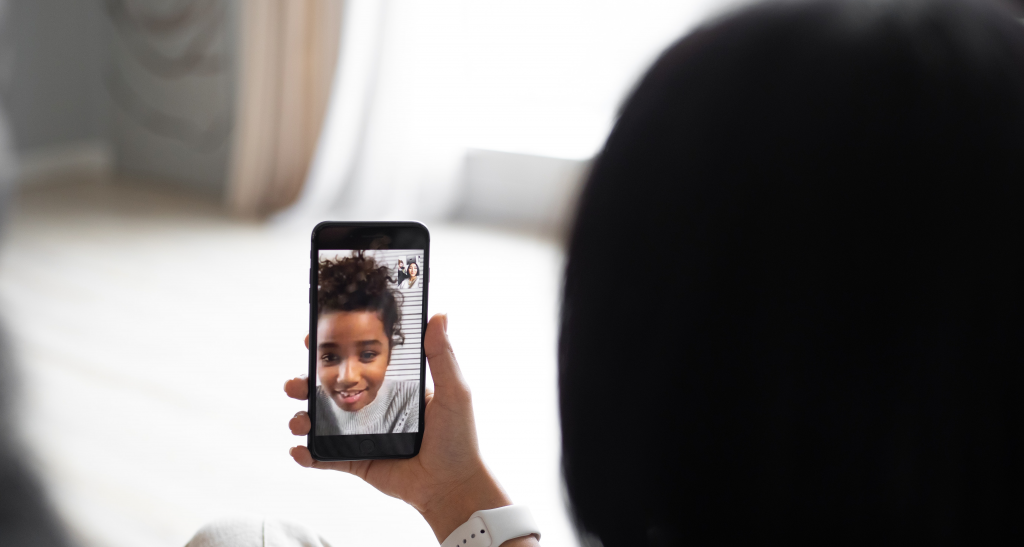
Technology in mental health care can improve access to services for some. The use of technology in providing mental health care has increased dramatically. Virtual appointments and mental health apps can improve access to services for some, but not all, persons. Barriers exist to the use of technology and virtual appointments, putting some at risk for inequities in health care.
The delivery of health care services overall during the past three years of the coronavirus pandemic has presented an enormous challenge for providers and patients, necessitating adaptations to the delivery of care model. This has been key for persons with mental illness—research data show that the number of those in the United States who have experienced depression and anxiety has risen from approximately 16 million per year in 2016 to 21 million persons per year in 2020.
One thing we’ve learned during this global crisis is that many, but not all, of us can successfully receive healthcare services by using electronic information and communication technologies that support remote, or virtual, clinical healthcare. This, of course, depends on the nature of the visit and the need for physical examination and being physically present.
Technology use has become an indispensable clinical tool. Let’s begin by defining a few terms:
- Telehealth refers to the use of technology for any remote (virtual) clinical encounter or any remote nonclinical services such as patient education and monitoring, provider training, and administrative uses.
- Telemedicine refers specifically to remote clinical services, meaning virtual appointments in general medicine or mental health.
The use of technology and the ability to have virtual appointments can increase a person’s access to general health care and mental health care services, especially if you live in a faraway or remote geographic area. One advantage of technology use in health care is that it’s more flexible with respect to our time and requires no travel and less time off from school or work.
Dramatic Increases in Use
The US Government Accountability Office (GAO) has reported dramatic increases in the use of telehealth services in the general Medicare and Medicaid populations during the pandemic as compared with before the pandemic (5 million telehealth services increased to more than 53 million services one year later, and 2.1 million telehealth services rose to 32.5 million one year later).
Similar increases in technology use in mental health care delivery were reported in a cross-sectional, national online study of 2,619 licensed psychologists practicing in the United States, where researchers reported that 7.07 percent of clinical encounters were virtual before the pandemic, and this rose to 85.53 percent during the pandemic. Two-thirds of the psychologists surveyed reported conducting all of their clinical work using telemedicine. This trend in the use of technology is expected to continue.
Barriers to Telehealth
Unfortunately, although technology can promote access to clinical care, some of us who experience mental illness have limited access to or barriers to the use of telehealth services and virtual appointments. For example, a person may lack a stable residence; have limited access to smartphones, computers, or broadband Internet connectivity; or lack the confidence or required technical training and skills to use these resources. These challenges are more pronounced in those of us who have a serious mental illness or are psychotic.
Substantial obstacles also exist for older adults, such as lack of technological literacy, hearing loss, and lack of comfort or desire to see providers virtually. Language barriers in those who are non-English-speaking present another barrier to telehealth access. One proposed solution has been to engage healthcare extenders, such as mental health aides or peer supporters, who can reach out to vulnerable persons and problem-solve. Research is ongoing in this area.
There has also been an enormous effort to develop technology apps for use in mental health support, education, tracking of symptoms and illness, and as an augmentation to clinical care. Some, but not all, of these, have been useful and popular, particularly among the younger generations. The advantage is that one can use these apps anonymously, without friends or co-workers finding out— thus, diminishing the stigma of mental illness. They are also flexible with respect to time and require no travel and less time off from school or work.
The downside is that one misses the interpersonal interaction with and valuable guidance and support from a professional mental health care provider—part of the therapeutic recipe for success. The burden is also on the user to evaluate and choose those programs that provide reliable information and direction, and this can be difficult to do.
Mental health apps and online education materials are limited to those persons who are without the barriers to technology use that I mentioned earlier. Unfortunately, these barriers create a technology gap that disproportionately places some vulnerable persons who have a mental illness at increased risk for inequities in health care. This must be addressed by researchers and technology developers, with input and pressure from users and our communities.
